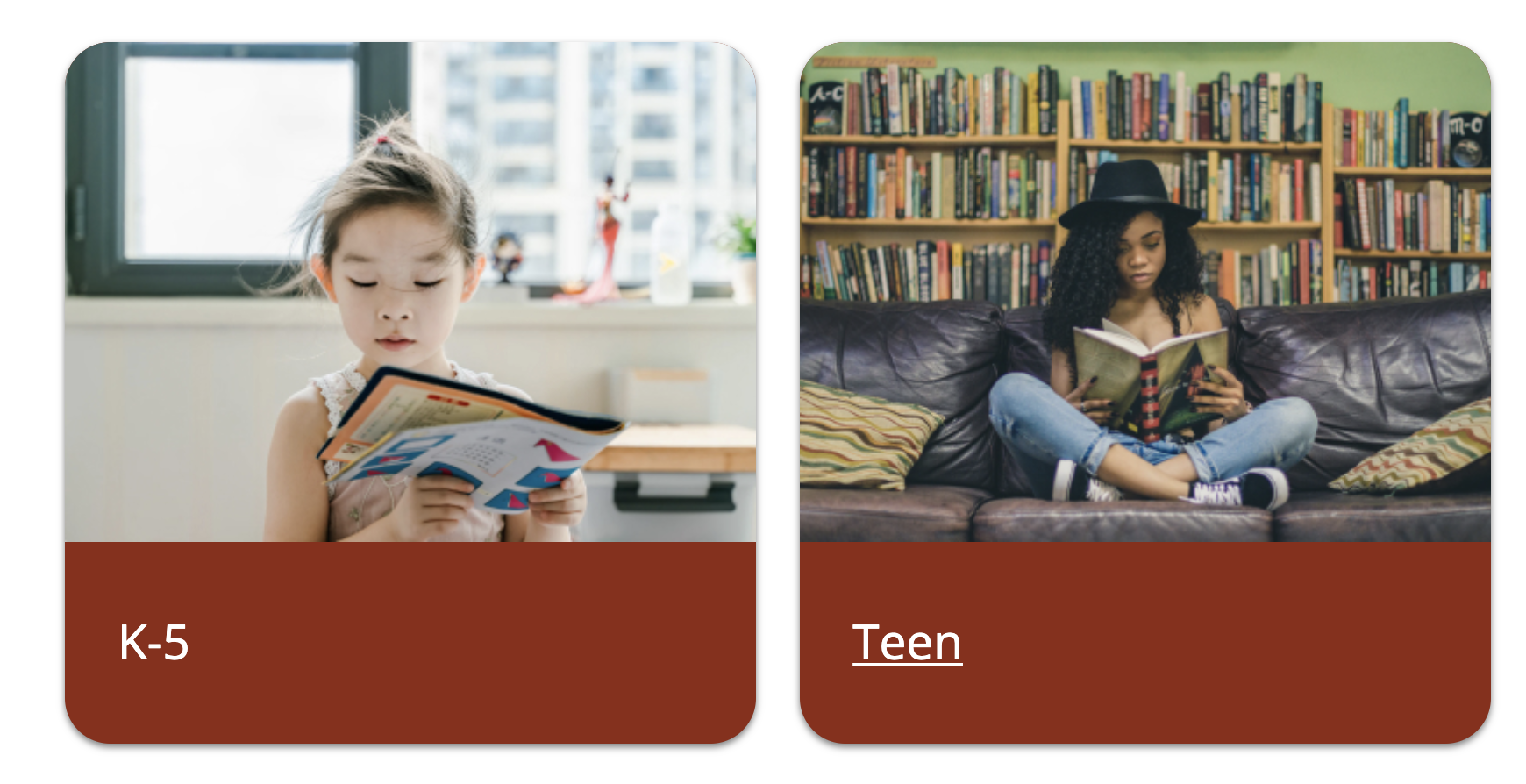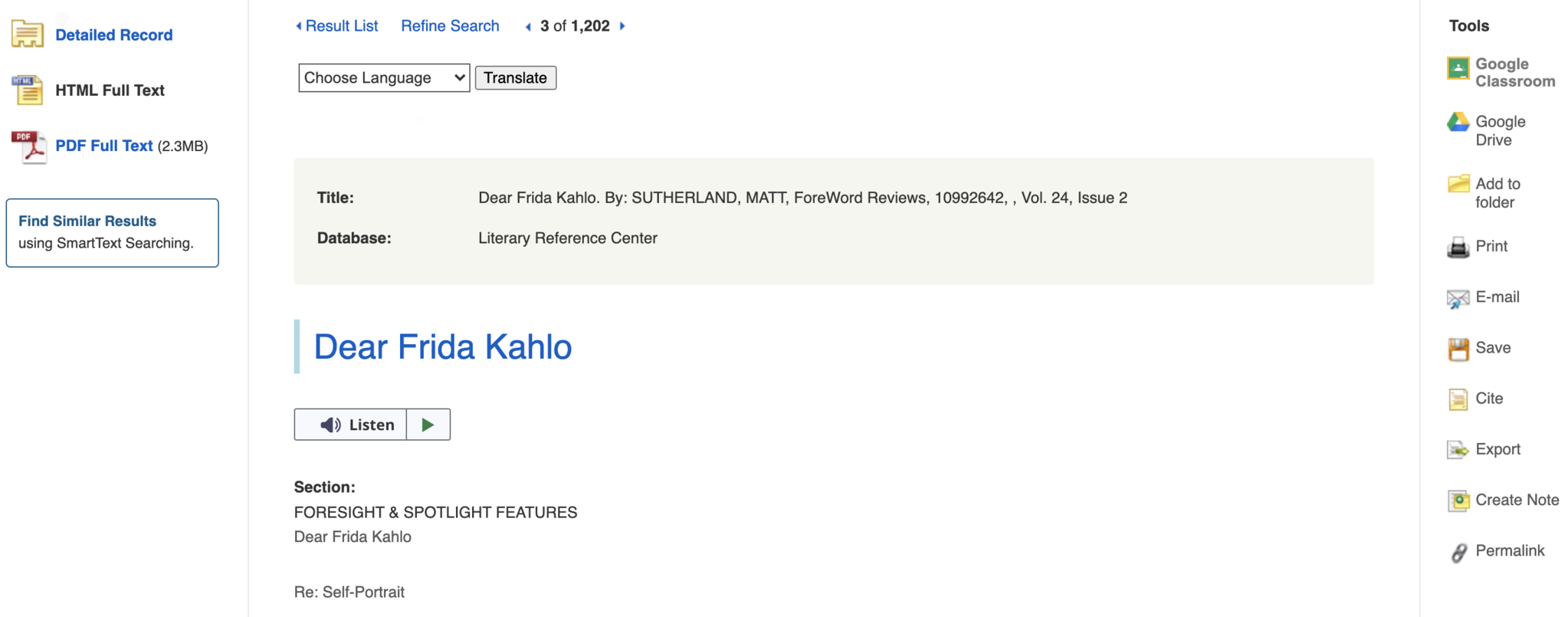MeL Databases

Steps:
1. Identify a topic for research or content area to be studied as you go through this section. It could be something that interests you or something that your students will be studying in your classroom.
2. While at MeL, click on eResources or Kids on the navigation bar.

3. Browse both eResources and Kids so that you are familiar with what they both have to offer.
4. Next, you are going to choose a grade level to explore several resources in depth.
5. If you are an elementary teacher, Britannica School Elementary, World Books Kids, and Explora Primary are good choices. All three will read the articles aloud to the students. There are also citations for the students to copy and paste to use in their reports.
- Britannica School Elementary is for grades 3-4. Students can find information on countries, animals, and people. They can search by pictures of the different subjects or type their search in.
-
World Book Kids is for lower elementary students also and there is a large selection of articles on countries, animals, and people. There are also shortcuts to science projects, games, and maps.
-
Explora Primary is a database of magazine articles, ebooks and reference books. The students can print, email, or send the articles to their Google Drive
6. If you are a secondary teacher, Britannica School Middle and High, Opposing ViewPoints and Explora for High School are excellent choices.
- Britannica School Middle and High are nonfiction content geared toward grades 4-12. There are over 132,000 encyclopedia articles, 103 images, 7,500 multimedia elements, more than 27,000 eBooks, novels, and essays. Tools include translation for 50+ languages and read-aloud functionality. Includes Lexile ranges and alignment with Michigan Department of Education Academic Standards across a variety of subjects.
- Gale in Context: Opposing ViewPoints provides different views about issues that help students develop critical thinking skills. This resource brings balance and perspective to contemporary issues using arguments from experts.
- Explora for High School provides hundreds of popular magazines and reference books for high school libraries. Covers subjects such as art, history, sports, and music. Includes thousands of biographies and primary source documents. Also includes photos, maps, and flags.
7. If you are a school counselor, you will want to choose the Learning Express Library (LEX) which is a large library of over 700 courses, practice tests, tutorials, eBooks, and flashcards. You will want to create a free login to use all the resources in LEX. When you start a course or practice test, it will save your progress and results.
8. If you are a school administrator, you will want to choose Academic Search Complete, Education Source, ERIC and Explora for Educators. These are databases that have both full text and abstracts for educational research.
Your activity for this section is to conduct a search on the topic you chose using at least two of the resources.
- What topic did you explore?
- Identify the resources you used and add them to the Google Checklist.
- Which resources did you find the most helpful?
Accessibility Note: As you go through the databases note the tools available for accessibility and note-taking. Many also have the ability to listen to the article. Some have a translation option for different languages. Watch for symbols as shown below and check them out.
This image is taken from the Explora interface. Users can translate and listen to the articles, send them to Google Classroom or Google Drive, print, cite, and get a permanent link to easily locate them. Users can also create an account and add the article to a folder, save the article and create notes. When the user logs in they can see their saved articles and notes.

Next, you are going to learn how to create citations for the articles you have read. Move on to go to Citation resources.
Standards
Addressing the ISTE Standards For Educators
Learner
1a. Set professional learning goals to explore and apply pedagogical approaches made possible by technology and reflect on their effectiveness.
1c. Stay current with research that supports improved student learning outcomes, including findings from the learning sciences.
Leader
2b. Advocate for equitable access to educational technology, digital content and learning opportunities to meet the diverse needs of all students.
2c. Model for colleagues the identification, exploration,
evaluation, curation and adoption of new digital resources and tools for learning.
Citizen
3b. Establish a learning culture that promotes curiosity and critical examination of online resources and fosters digital literacy and media fluency.
3c. Mentor students in safe, legal and ethical practices with digital tools and the protection of intellectual rights and property.
